第27章 Partiality(1)
This partiality,where it is not permitted an authority to render all other studies insignificant or contemptible,is often indulged so far as to be relied upon and made use of in other parts of knowledge to which it does not at all belong and wherewith it has no manner of affinity.
Some men have so used their heads to mathematical figures that,giving a preference to the methods of that science,they introduce lines and diagrams into their studies of divinity or politic[al]enquiries,as if nothing could be known without them;and others,accustomed to retired speculations,run natural philosophy into metaphysical notions and the abstract generalities of logic;and how often may one meet with religion and morality treated of in the terms of the laboratory and thought to be improved by the methods and notations of chemistry.
But he that will take care of the conduct of his understanding to direct it right to the knowledge of things must avoid those undue mixtures and not,by a fondness for Chat he has found useful and necessary in one,transfer it to another science where it serves only to perplex and confound the understanding.
It is a certain truth that res nolunt male administration;it is no less certain res nolunt male intelligence.Things themselves are to be considered as they are in themselves,and then they still show us in what way they are to be understood.
For to have right conceptions about them we must bring our understandings to the inflexible natures and unalterable relations of things,and not endeavor to bring things to any preconceived notions of our own.
There is another partiality very commonly observable in men of study,no less prejudicial nor ridiculous than the former,and that is a fantastical and wild attributing all knowledge to the ancients alone or to the moderns.
This raving upon antiquity in matter of poetry Horace has wittily described and exposed in one of his satires.The same sort of madness may be found in reference to all the other sciences.Some will not admit an opinion not authorized by men of old,who were then all giants in knowledge;nothing is to be put into the treasury of truth or knowledge which has not the stamp of Greece or Rome upon it;and since their days will scarce allow that men have been able to see,think or write.Others,with a like extravagancy,contemn all that the ancients have left us and,being taken with the modern inventions and discoveries,lay by all that went before,as if whatever is called old must have the decay of time upon it and truth too were liable to mold and rottenness.Men,I think,have been much the same for natural endowments in all times.Fashion,discipline and education have put eminent differences in the ages of several countries and made one generation much differ from another in arts and sciences;but truth is always the same;time alters it not,nor is it the better or worse for being of ancient or modern tradition.Many were eminent in former ages of the world for their discovery and delivery of it;but though the knowledge they have left us be worth our study,yet they exhausted not all its treasure;they left a great deal for the industry and sagacity of after ages,and so shall we.
That was once new to them which anyone now receives with veneration for its antiquity;nor was it the worse for appearing as a novelty,and that Which is now embraced for its newness will,to posterity,be old but not thereby be less true or less genuine.
There is no occasion on this account to oppose the ancients and the moderns to one another or to be squeamish on either side.He that wisely conducts his mind in the pursuit of knowledge will gather what lights and get what helps he can from either of them,from whom they are best to be had,without adoring the errors or rejecting the truths which he may find mingled in them.
Another partiality may be observed,in some to vulgar,in others to heterodox tenets.Some are apt to conclude that what is the common opinion cannot but be true;so many men's eyes,they think,cannot but see right;so many men's understandings of all sorts cannot be deceived;and therefore [they]will not venture to look beyond the received notions of the place and age nor have so presumptuous a thought as to be wiser than their neighbors.They are content to go with the crowd,and so go easily,which they think is going right or at least serves them as well.But however Fox populi lox Dei has prevailed as a maxim,yet I do not remember wherever God delivered his oracles by the multitude or nature truths by the herd.On the other side,some fly all common opinions as either false or frivolous.
The title of many-headed beast is a sufficient reason to them to conclude that no truths of weight or consequence can be lodged there.vulgar opinions are suited to vulgar capacities and adapted to the ends of those that govern.He that is ill know the truth of things must leave the common and beaten tract,which none but weak and servile minds are satisfied to trudge along continually in.Such nice palates relish nothing but strange notions quite out of the flay;whatever is commonly received has the marl;of the beast on it,and they think it a lessening to them to hearken to it or receive it;their mind runs only after paradoxes;these they seek,these they embrace,these alone they vent,and so,as they think,distinguish themselves from the vulgar.But common or uncommon are not the marks to distinguish truth or falsehood and therefore should not be any bias to us in our enquiries.We should not judge of things by men's opinions,but of opinions by things.